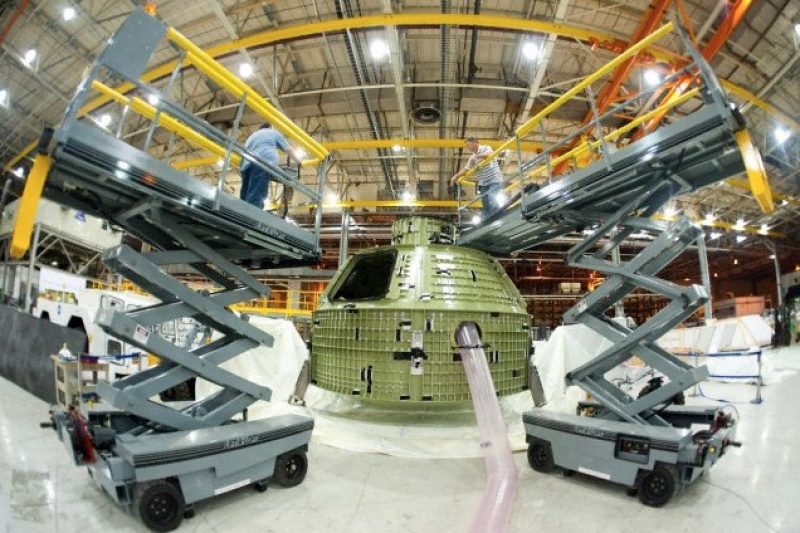The European Space Agency has awarded French-based Airbus Defence and Space (sic) with the handling of the service module of the American Orion capsule. The first flight with its European module is scheduled for 2017-2018
“Airbus D&S and ESA signed, in Berlin, the contract with regard to the development and creation of the service module for the Orion – the future manned space capsule of the American space agency NASA,” announced Airbus D&S in a communiqué. “This contract worth approximately €390 million marks the first time that Europe has supplied vital components for an American space mission,” said the agency.
The service module will supply the propulsion, electricity supply, thermostatic control and the vital components for the American capsule. The decision is based on the experience acquired by Airbus Defence and Space with the ATV (Automated Transfer Vehicle) – the automatic supply vehicle of the International Space Station that they run for ESA.
For the first time in the history of space exploration, crucial tasks for the very survival of American astronauts from NASA and the supply of key components will, in fact, be entrusted to systems made outside of the United States. In December 2012, NASA and ESA had agreed to launch Orion with the aid of a European module.
“After the remarkable achievement of five successful missions by the ATV to the International Space Station, Europe is reconfirming with this programme, its important role in the realm of regular space flight,” confirmed François Auque, director general for Airbus D&S space systems.
“Thanks to this programme and to our permanent investments, we are in a position to preserve our technological advance,” he added. The Orion space capsule – developed by Lockheed Martin Space Systems – will permit manned space missions to the moon, asteroids and even deep space. It can accommodate at least four astronauts.
Its first mission involving Europe – envisaged to take place towards 2017-18 and christened “Exploration Mission 1” – will be an unmanned flight towards the lunar orbit before returning to Earth. In the follow-up “Exploration Mission 2” after 2020, it is planned to have astronauts on board.




 Tootlafrance is Ireland’s fresh new eyes on France, bringing you the latest news, exclusive celebrity interviews, political analysis, cultural events, property news and, of course, travel features written by top Irish journalists.
Tootlafrance is Ireland’s fresh new eyes on France, bringing you the latest news, exclusive celebrity interviews, political analysis, cultural events, property news and, of course, travel features written by top Irish journalists.